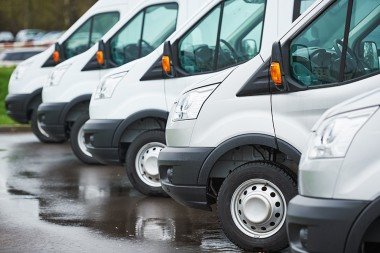
UK Fleet decision-makers are split over when the sale of new diesel and petrol cars and vans should be phased out, or whether it should happen at all.
Half (50.4%) of respondents to a Fleet News poll said they were against the Government introducing a ban on fossil fuels. However, almost a third (31.2%) said they wanted a more ambitious target than the current Government’s policy of making all cars and vans zero-emission capable by 2040.
Respondents were evenly split between the target being brought forward from 2040 to 2030 (16.2%) or the stricter target of 2025 (15%). The latest sales figures, however, show the scale of the change needed to address even the less ambitious 2040 target.
Fewer than one in 10 (8.7%) of all new cars sold year-to-date are classed as alternative fuel vehicles (AFVs), according to the Society of Motor Manufacturers and Traders (SMMT).
Two-thirds (65.4%) of new car registrations were petrol, while one in four (25.8%) were diesel – down from one in three (31.7%) in 2018. Mike Hawes, SMMT chief executive, told Fleet News the industry is committed to “zero emission transport for all” and the necessary investment to achieve that goal.
“This is about market transformation, however, and despite growing choice, low and zero emission vehicles still only make up a fraction of the market, underscoring the huge challenge of fast-tracking a shift to zero emission transport,” he said.
“Ambition must be matched by measures that support industry allowing manufacturers time to invest, innovate and sell competitively. This includes long-term Government commitment to incentives and investment in infrastructure to accelerate the uptake of these new technologies.”
In September, battery electric vehicles (BEVs) saw the biggest percentage growth of all fuel types, up 236.4% (5,414 units) as new models boosted registrations. Plug-in hybrids (PHEVs) also saw growth for the first time in six months – albeit on the back of a 22.3% decline in the same month last year.
Year-to-date PHEV registrations are now 5.2% below the same period two years ago. By comparison, popular hybrid electric and battery electric cars are up 32.4% and 125.1% on the same period. The UK Government has said it will ‘look again’ at plans to end the sale of new petrol and diesel cars by 2040.
Speaking at the Conservative Party Conference, transport secretary Grant Shapps told delegates that the Government must “go further to protect our environment and improve our competitive edge”. The Government had already committed to end the sale of new ‘conventional’ diesel- and petrol-powered vehicles by 2040, with cars and vans requiring a zero-emission capability.
Meanwhile in Denmark, backed by 10 other European Union countries, has called for a strategy to phase out diesel and petrol cars, including a ban of sales at member state-level by 2030 to combat climate change. The proposal came during a meeting of EU environment ministers in Luxembourg.
Ursula van der Leyen, the new president of the European Commission, wants to make Europe the first climate-neutral continent by 2050. The Danish delegation argued that to achieve this, the transport sector needs to decrease its emissions, which is the only sector that currently is increasing its emissions.
The EU aims to cut carbon emissions in the bloc by 40% by 2030, while the Commission plans to reduce them to zero by 2050. “We need to acknowledge that we are in a bit of a hurry,” Danish climate and energy minister Dan Jorgensen told Reuters after the meeting.
Denmark made headlines in October 2018, when its government announced that it would ban the sale of all new fossil fuel-powered cars by 2030, but it subsequently scrapped the idea because this would have breached EU rules.
The warning, which could still have implications for any proposed UK ban, came in a letter to the Danish Parliament’s European Affairs Committee from the Commissioner for Internal Market, Industry, Entrepreneurship and SMEs, Elżbieta Bieńkowska.
She said any ban introduced by Denmark on the import and sale of new diesel and petrol cars from 2030 would be in breach of EU type-approval rules. Bieńkowska has subsequently said that the commission is committed accelerating the shift to clean and sustainable transport.
However, she added: “The commission is equally committed to upholding single market rules to the benefit of EU industry and consumers.” She said member states have the opportunity to restrict access of cars with diesel and petrol engines to urban centres based on EU emission legislation.
But, with potential bans being announced by several other countries, including the UK, France, Spain, the Netherlands and Ireland, she acknowledged that to ensure a coordinated European approach, further debate was needed.
Jorgensen said proposing to allow individual member states to ban sales on new diesel and petrol cars will hopefully put pressure on the commission to propose a complete phasing out fossil fuel-powered vehicles in the bloc in the coming decades.
He also said if the EU could not agree on a union-wide ban, it would suggest individual countries should be allowed to implement such a measure.